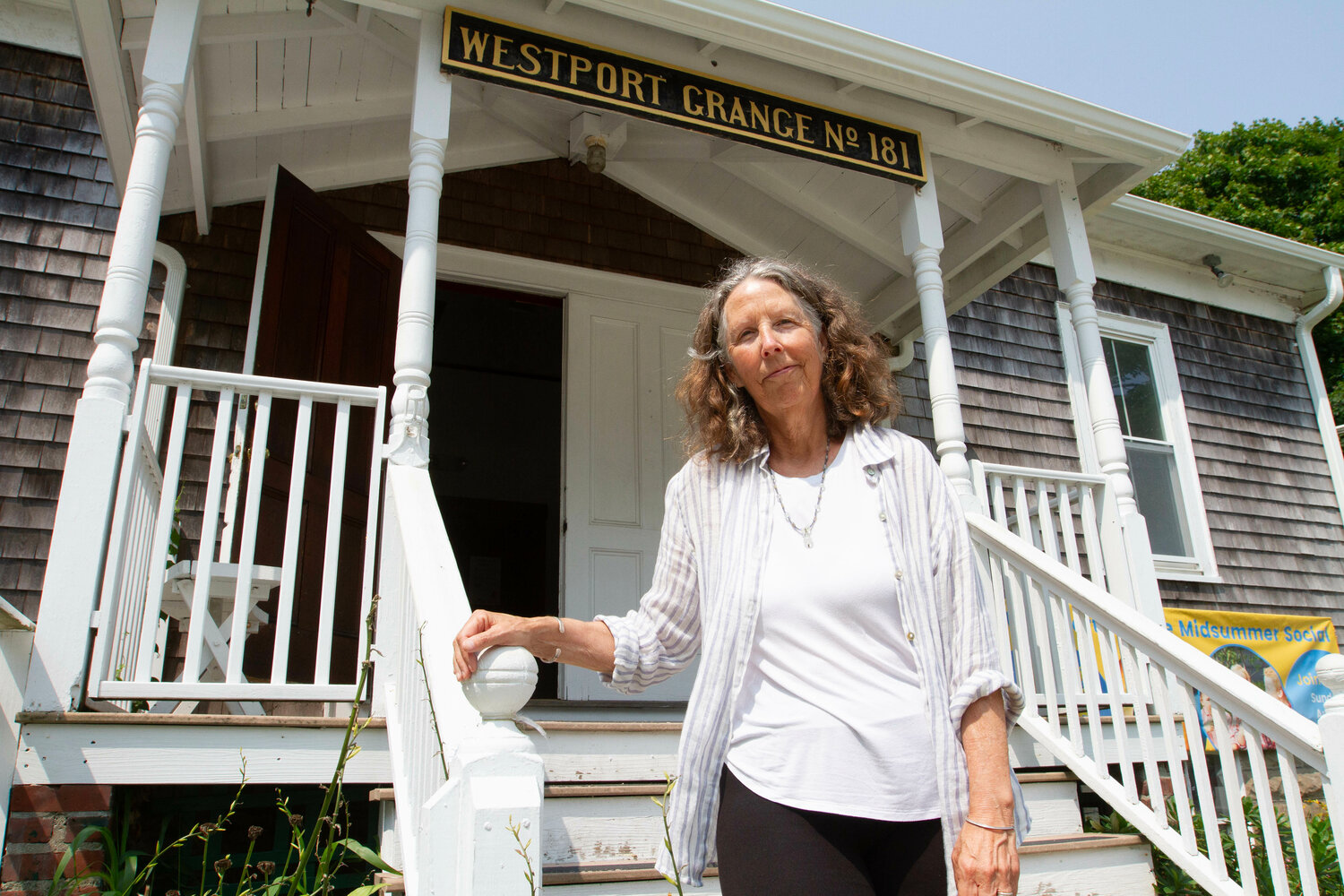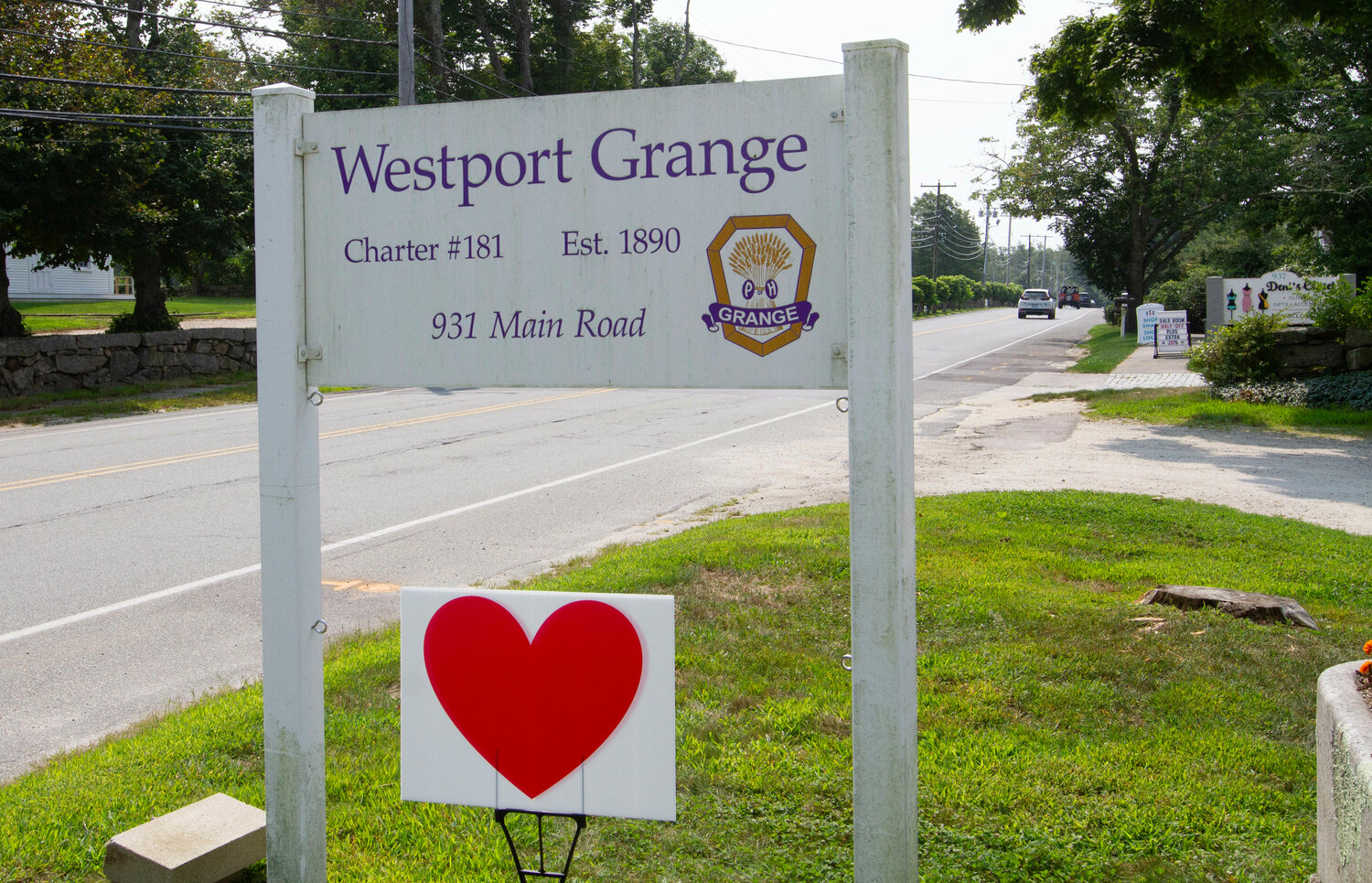Westport Grange re-invents itself with changing times
Learn more at Grange's annual ice cream social this Sunday, August 25
Gone are the huge meetings and the local membership that once numbered in the hundreds. Gone are many of the farmers who once supported and depended on it, and gone too is some of …
This item is available in full to subscribers.
Please log in to continue |
Register to post eventsIf you'd like to post an event to our calendar, you can create a free account by clicking here. Note that free accounts do not have access to our subscriber-only content. |
Day pass subscribers
Are you a day pass subscriber who needs to log in? Click here to continue.
Westport Grange re-invents itself with changing times
Learn more at Grange's annual ice cream social this Sunday, August 25
Gone are the huge meetings and the local membership that once numbered in the hundreds. Gone are many of the farmers who once supported and depended on it, and gone too is some of Westport’s small-town, insular feel that it once helped create and reflect.
But 131 years after its charter was signed, Westport Grange #181 at 931 Main Road is alive and well and its president, Barbara Smith, looks ahead with optimism.
“I love it,” she said Thursday, sitting in a folding chair in the Grange Hall at 931 Main Road. “We all do.”
Over about an hour, Smith talked about the fraternal organization, its roots and heyday, what she loves about it, and how it can solidify its place as a vital part of the community:
First off, what is the Grange?
“After the Civil War, the farmers had been decimated by the war. With the onset of the railroads, there were some huge changes. The Grange is based on the grange system in the United Kingdom, and had to deal with land, agriculture and animal husbandry. and there were also a lot of Christian overtones too The Grange was the first fully racially integrated of the fraternal organizations, and they were the first to not only have women as full members but there are positions in the Grange that could only be held by women. So it has a long history of inclusiveness and openness and was an integral part of the community.”
How did you get involved?
“When I started there was hardly any membership. I had a number of friends who were long-term members and they were practically begging to have members come in. Most of the old guard had died off by the time I joined, and there was real concern about the future. We got a letter from the state Grange saying, ‘You guys have to do something or you’ll have to close the doors.’ It was dying — there was just this small group of cornerstone individuals who just kept the doors open for years with little money or resources except what was made from renting out the building for various classes. It was on its way out, but I really saw the potential.”
What is that potential?
“In this day and age, we need community. This was, for over 125 years, a backbone of the community. We need places to gather, we need places where people can go and feel a part of something. I think this being a farming community, and all that’s happening with agriculture, trying to feed people, and the environment, its time is ripe. For me it’s a blank canvas and the possibilities for what we can create are endless, as long as they’re in alignment with Grange principles.
What’s the current state of Grange membership?
We have about 30 active members, and another 19 or 20 who are ‘Friends of the Grange.’ It’s a lot more than when I started, when there were maybe five active members?”
What kind of things are happening at the Grange these days?
We are open for the community. It’s a meeting place, a place to connect and a place to learn. What isn’t good about trying to help the environment and farmers? One of the local farmers has held a Seed School in the last few winters that has been very well attended — it amazes me to see these young farmers hanging on every word. We work with the Westport Food Pantry (which uses donated space in the basement for its operation). We have dances, talks, yoga, exercise classes and an improv group who use the building. We also host Alcoholic Anonymous, Girl Scouts and provide the space for many of the local non-profits for their business meetings. We sponsor a lecture series called Westport Talks on environmental and ecological topics as well as gardening and sustainable farming ... we make our building available for community events. One of the agricultural commission members is going to start meeting with farmers here to share their concerns and challenges— we welcome all of these.”
What challenges do you face?
“Most people driving by who see this building say, ‘What is that?’ We would like them to stop and learn. The biggest challenge for us is the challenge for every organization — volunteers. Everybody has a lot on their plate. So the fact that we have the volunteers that we do is amazing, but most of them don’t have the time to run with things. Given this reality, we can be creative. We like to talk about ‘bite-size volunteerism’ — just offering what you can and lending your time and talents to contribute to the whole.”
Like the other fraternal organizations, the Grange has always had ritual in its meetings. Is that a good thing in this day and age?
“ The Grange ritual was created at a time in history where it was a very common practice. There is great beauty and symbolism in much of the ritual that is so powerful and meaningful to those who grew up with it. However, for newcomers it appeared foreign and would turn people off. It is very rooted in the Christian tradition which can be a hard sell in a very secular society. I tend to be somewhat of a renegade, so when I heard that the State Grange was willing to allow us to create what worked for us, that was my green light to say, ‘OK I’m going to take a shot at it.’ But part of our tax status is that you do need to have a ritual, and we do have one.
At the beginning of each monthly meeting, “We do readings from the Farmer’s Almanac or similar kinds of publications and we talk about the zucchini and what’s growing and what the moons are, and then we end with another reading and a song. I think we’ll expand the ritual too to include other meaningful things.”
Why do you love this place?
“I have a tremendous amount of respect for what (the Grange organization) has done over the years in terms of community service and talking about living an exemplary life. At this point, we could do so many things. It’s about finding people, following the energy, and seeing what shows up organically. My whole philosophy is if we’re having fun, it’s going to attract people.”
You said that when you joined, the Grange was close to closing its doors forever. What is the current prognosis?
“We’ve gone from life support to growing pains, which is a really big leap for this Grange.”
Want to learn more?
The Grange meets the second Thursday of the month at 6:30 p.m. except for winters, when monthly meetings are held online at www.westportgrange181.com.
This Sunday, Aug. 25, members will host their annual Ice Cream Social from 2 to 5 p.m. There will be ice cream, music by The Moon Bellies, temporary tattoos for the kids, and lots more. It is free and open to all.









